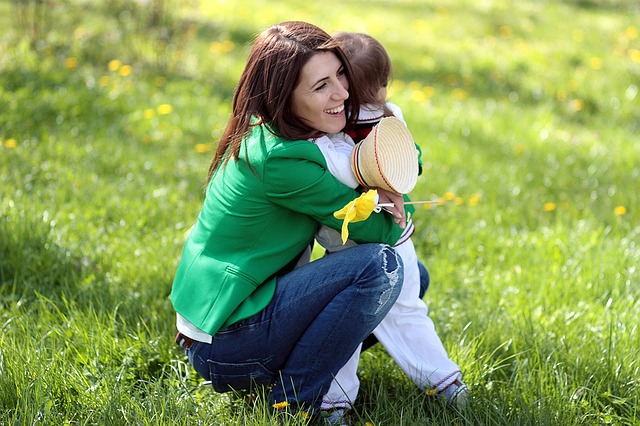Hands up if you’re a parent who can’t wait to hear about your child’s day at school?
In fact, the first words off your lips when you meet your child again after your hours apart is probably “How was your day?”
And you probably get a “Good.” in reply.
As a parent of two very chatty boys myself, it amazes me how they can find so much to talk about at all hours of the day – but ask them those two words “How’s school?” and it’s like I hit a brick wall.
“Okay, mummy.” is their usual response.
Over the past few years, I’ve tried every trick in the book I can to get my boys to share more, and I’ve found that persistence does pay off.
Here are tips I’ve gleaned along the way on how you can encourage your kids to give you a bigger peek into their day.

Tip #1: Ask specific questions
Avoid generic questions like “How was your day?” and choose questions that are more interesting and likely to have a unique response.
Try asking these questions instead:
“Who did you talk the most with today?”
“What was something interesting you learnt/saw at school?”
“What was the most fun thing you did today?”
“Which area of your school is the most fun?”
“What was something new you learned at school today?”
“Who do you want to make friends with but haven’t yet? Why not?”
Tip #2: Remember their friends’ names

Take the trouble to get familiar with their friends’ names.
There’s a saying that goes, “People don’t care how much you know until they know how much you care.”
Show your child how much you genuinely care to know about his day in school by bothering to remember the names of the other kids he hangs out with.
This way, your child understands that he’s not just telling you a random story about a stranger, but gets the sense that you are just as invested in his friendships as he is.
Tip #3: Always follow up
If your child told you on Monday that his best friend in school was homesick, ask him on Tuesday if his friend is better.
If he shares that he really enjoyed a new topic that the teacher is covering in school, ask him a few days later what interesting things he has learnt from that topic.
Asking such questions helps our children to see how much we care and keep track of their daily ups and downs – they’ll know we’re not just asking questions to keep tabs, but because we genuinely care about the things and people they care about too.
These conversations are also good training grounds for values like accountability, compassion and perseverance to be taught.
Tip #4: Look for the best times
Every child loves having their parents’ undivided attention, so don’t ask him questions about school (only) when you’re multi-tasking, for instance when you’re cooking lunch, driving the car or messaging on your phone.
Find time when you can just talk and listen, with no distractions, and preferably not right after he runs through the school gate!
My son is always most keen to share his day with me after lunch – not at pick up, or on the car ride home, or while he’s eating his lunch – and I’ve come to realise he does need that one hour or so of silence to make the transition back to home from school before he is ready and willing to share.
My job is to be ready to listen when he is ready to talk.
Tip #5: Get to know other parents

Even with your best-made plans and intentions, some kids are just not that excited to share about their day, and that’s okay. If that’s your child, pushing him to share more than he’s ready to can backfire, with him coming to dread these after-school talks.
Assuming you’ve tried all four tips above and you’re still drawing a blank, there’s always the good old grapevine to fall back on. These days, it’s easy to make friends with the parents of your child’s classmates, thanks to WhatsApp groups which most classes would set up.
Befriending your child’s classmates’ parents can help you learn more about school life, about interesting events that happened in their class, and sometimes even about the dynamics of the friendships within that class.
One word of caution: If any situation should arise where your child seems to have caused someone emotional hurt or physical harm, or if you hear that he has been acting up in class, don’t accuse your child until you have asked him for his side of the story.
By Dorothea Chow.
* * * * *
Like what you see here? Get parenting tips and stories straight to your inbox! Join our mailing list here.
Want to be heard 👂 and seen 👀 by over 100,000 parents in Singapore? We can help! Leave your contact here and we’ll be in touch.

























































Leave a Comment: